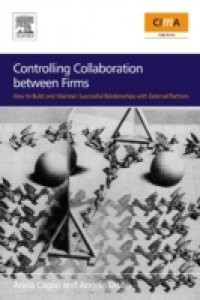Shows how accounting information and control mechanisms are used in decision-making, planning and control at an inter-organizational level and how accounting tools and techniques may support the development and management of external relationships with strategic partners. In "global companies" the use of management control mechanisms has increasingly become decentralised from the management accounting department, this book covers these issues. In all functional areas (marketing, operations, human resources, etc.), those who are expected to be able to analyse and interpret accounting information collected from external partners, have to exercise cost control to ensure that profit targets are achieved and understand.* to understand the nature of collaborative partnerships and illustrate the variables that explain the choice of different control modes in the various contexts of cooperation;* to describe the characteristics of management accounting mechanisms for cross-boundary settings, such as collaborative programmes and budgets, inter-firm performance measurement systems and inter-organisational cost management techniques;* to describe empirical evidence on control choices, management accounting practices and on management accountants' roles in collaborative relationships;* to present a framework of control patterns and specific Accounting Information Network (AIN) configurations that provide some novel theoretical insights on inter-organisational accounting and control and some guidance to practitioners operating in inter-firm collaborative settings.

